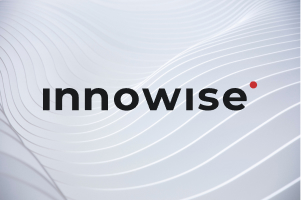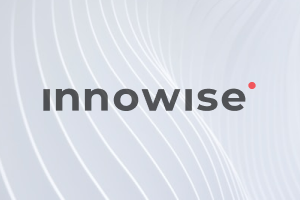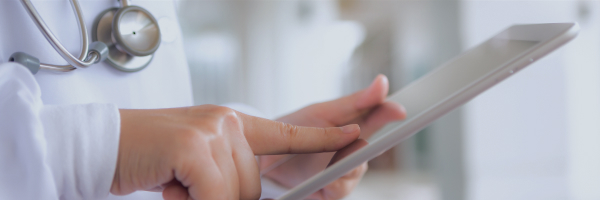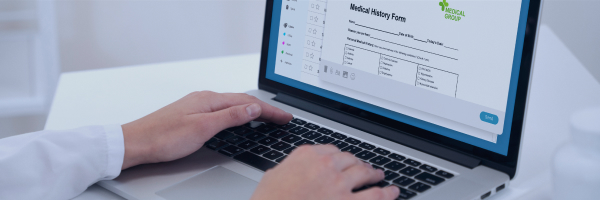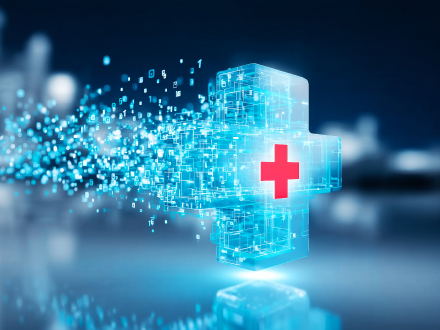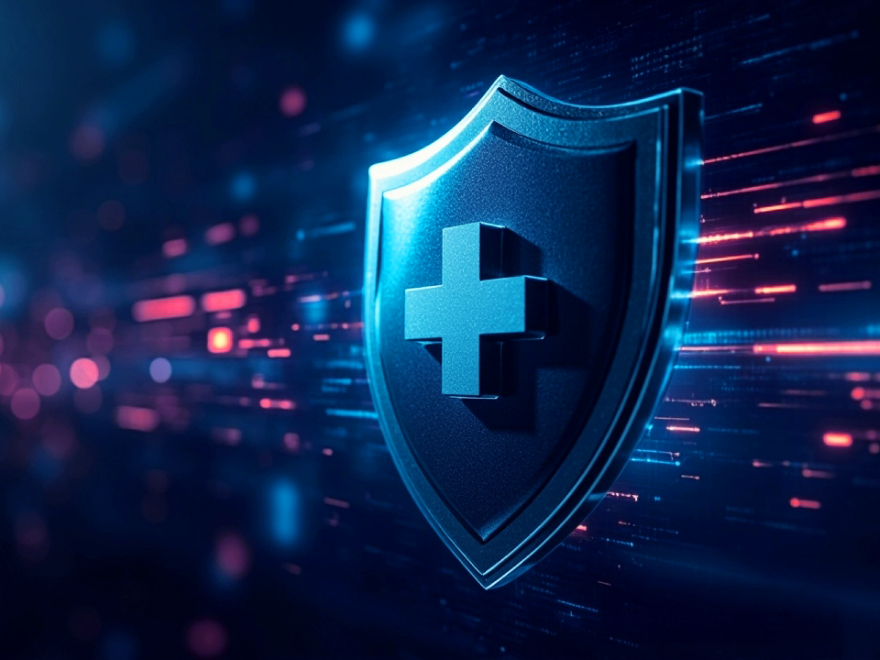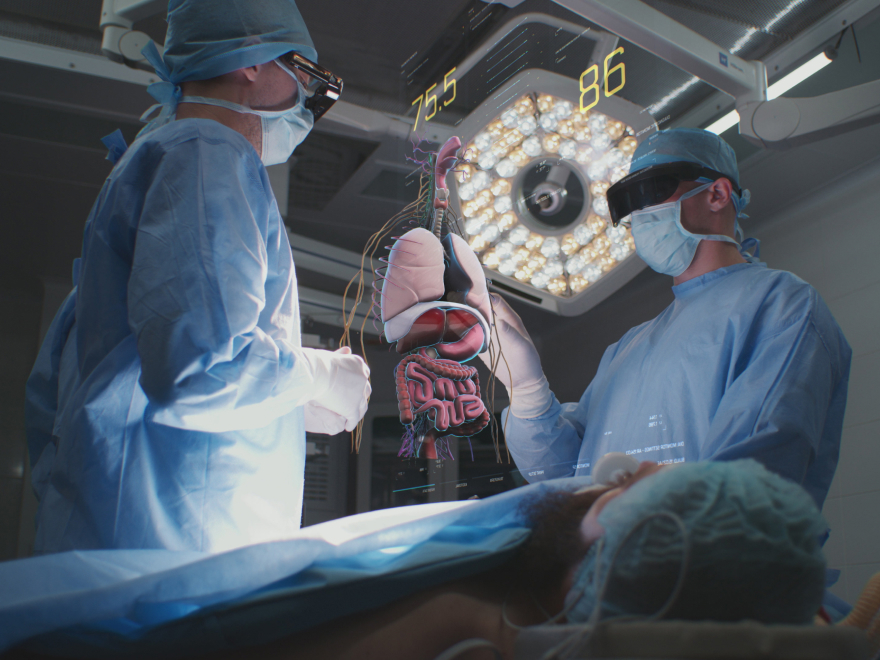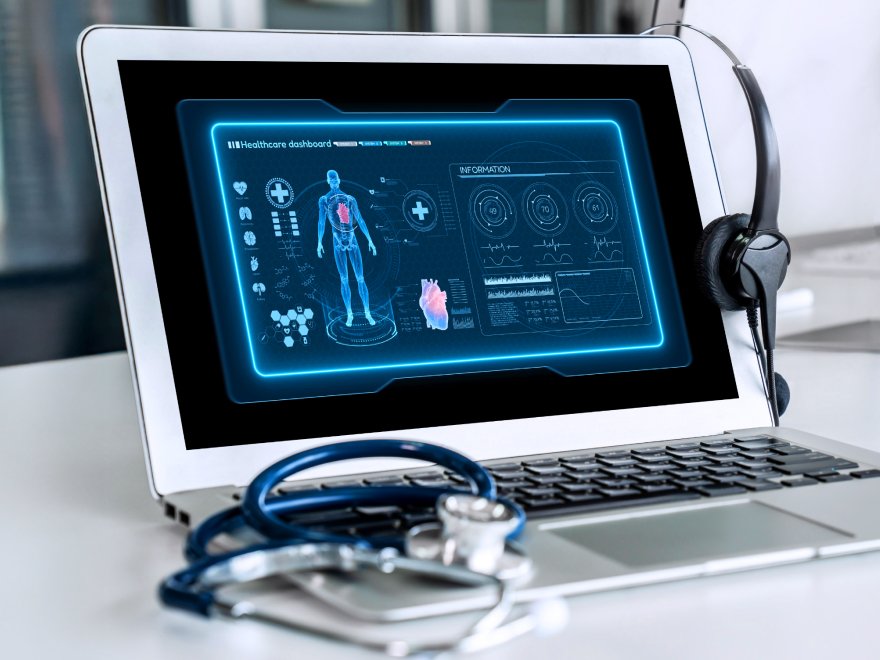- Gestión de datos de pacientes
- Gestión de las relaciones con los pacientes
- Gestión de documentos
- Gestión de tareas y colaboración
- Automatización de ventas y marketing
- Informes y análisis
- Portal de autoservicio para pacientes
- Integración con sistemas de HCE
Gestión de datos de pacientes
Cada CRM cuenta con un eje central donde se reúnen todos los datos relacionados con los pacientes, desde historiales médicos y resultados de pruebas hasta citas programadas y solicitudes de chat de asistencia. Con acceso a historiales médicos completos e historiales de interacciones, los profesionales sanitarios y los coordinadores médicos pueden tomar decisiones precisas y resolver las solicitudes de los pacientes con mayor rapidez.
Gestión de las relaciones con los pacientes
La gestión de las relaciones es fundamental para la CRM sanitaria gestionar las interacciones entre proveedores y pacientes, las consultas, los seguimientos programados y la comunicación personalizada se basan en las preferencias y los historiales médicos de los pacientes. Este nivel de atención ayuda a reforzar el compromiso del paciente y agiliza aún más la atención.
Gestión de documentos
Al organizar los documentos de los pacientes en un repositorio digital central, la gestión documental garantiza que los profesionales sanitarios pueden acceder fácilmente a toda la información pertinente. También ayuda a controlar las versiones de los documentos y a compartir historiales médicos, formularios de consentimiento, reclamaciones de seguros y otros documentos esenciales.
Gestión de tareas y colaboración
Con CRM, es más fácil para los equipos médicos realizar un seguimiento de las tareas en curso y mantenerse en contacto en relación con la gestión de pacientes. El personal puede seguir fácilmente el progreso de las tareas, sincronizar horarios y obtener información sobre los pacientes en tiempo real. Así, los equipos se mantienen al tanto de lo importante sin el estrés de tener que hacer malabarismos entre la atención al paciente y el trabajo administrativo.
Automatización de ventas y marketing
Con las herramientas de ventas y marketing CRM, los proveedores sanitarios pueden automatizar campañas de correo electrónico identificar y cuidar a los pacientes potenciales y retener a los existentes. Elaborar estrategias de comunicación a medida para distintos segmentos de público y el envío de mensajes instantáneos específicos directamente desde el CRM mantiene a los pacientes comprometidos e informados.
Informes y análisis
Las herramientas CRM de informes y análisis ofrecen a los equipos una visión en tiempo real de los datos de los pacientes, las tendencias y los procesos operativos. Estas herramientas convierten los datos demográficos de los pacientes, el tratamiento, el compromiso y las métricas de rendimiento de la práctica en información directa y procesable para una atención más eficiente y con mayor capacidad de respuesta.
Portal de autoservicio para pacientes
Los pacientes pueden acceder a su información sanitaria, concertar citas, solicitar la renovación de recetas y comunicarse con sus proveedores a través de un portal de autoservicio. Esto permite a los pacientes asumir un papel más activo en su cuidado y simplifica las tareas administrativas de los profesionales sanitarios, mejorando la eficiencia global.
Integración con sistemas de HCE
Conexión del CRM con el Sistema de HCE garantiza una flujo continuo de datos entre plataformas.
Permite a los profesionales sanitarios consultar las historias clínicas, los resultados de laboratorio y los historiales de tratamiento de los pacientes sin cambiar de sistema, lo que agiliza la toma de decisiones y reduce el riesgo de errores debidos a la fragmentación de los datos.
